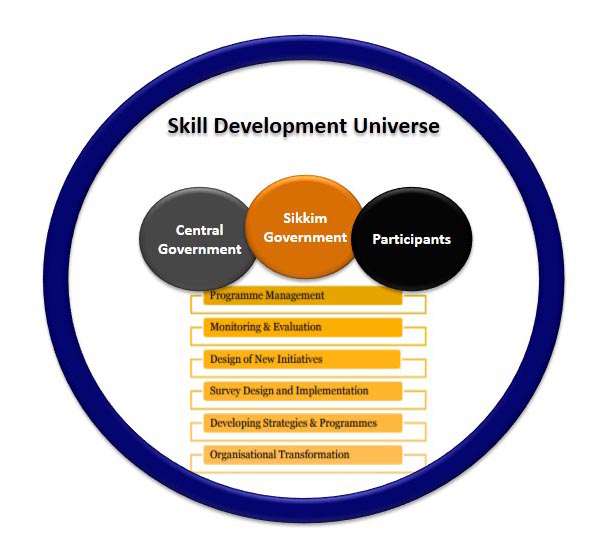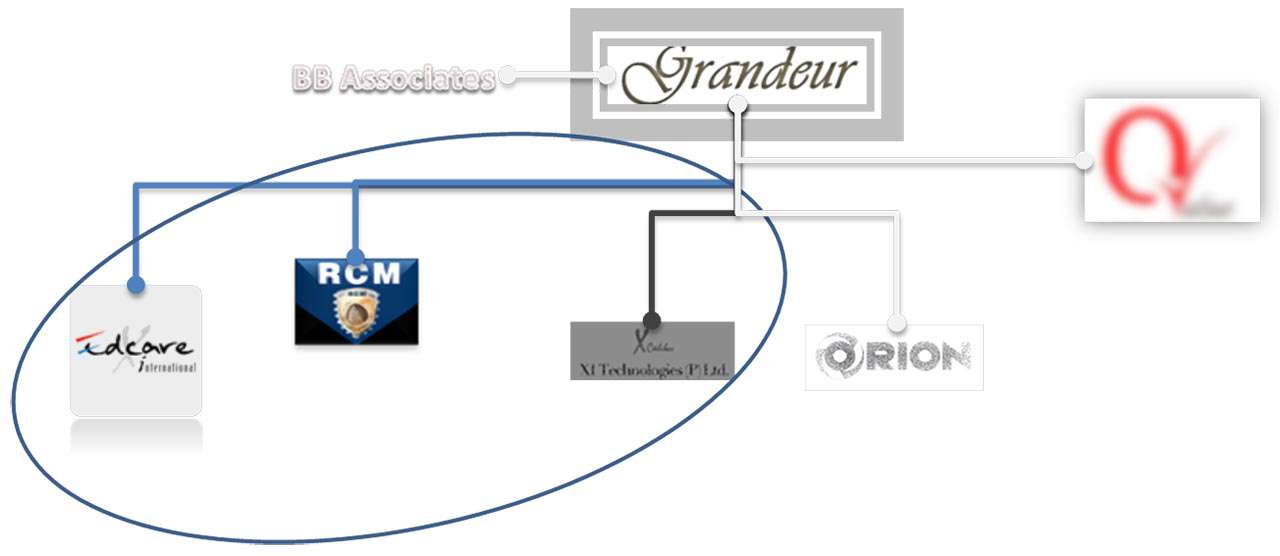SOCIAL SECTOR CONSULTING
SOCIAL SECTOR CONSULTING
APPROACH & CAPABILITY
Skill for Work: An Approach
India – the Country along with its constituent states – is changing and the rate of change over the last few years has increased phenomenally. A brief look at the factors that is leading this drive indicates:
- India will be one of the youngest country in the world with a median age of 29 years
- This potential can be harnessed only through proper and adequate skill development
- The job is a vast one and can be achieved only through PPP Style Programs
Adequately tooling the young population with job skills will bridge the missing gap between Education and Employment.
Within TEAM PRADERA – Social Consulting is driven by its constituent member XI Technologies. XI Technologies [XIT], along with its group partners – Regional College of Management [RCM] and Edxcare International, are uniquely placed in providing the necessary services to the State Governments and various Governmental organizations. XIT’s focus area includes –
- Long Term Skill Development Sustenance through forward linkages
- Preparation and Presentation of Skill Development related Project Reports
- End-to-end Program execution, from mobilization to placement.
In the Social Sector Consulting, Team Pradera – of which XIT is a founding constituent – has experience and capability as presented in the following diagram. In addition to the listed services – we also provide on demand consulting support in the areas of –
- Document Digitization
- Labour Health Card Administration
- Finishing School for Relocation
- Continuous Quality Review
- Employability Survey.

XI Technologies – an approach to Skill development
XIT’s experiences indicate that only recently emphasis has been put on skills development and adequate resources being channelized for implementation. In developing countries, skills development has been neglected. Skills development over a long period has been side-lined in favour of investment in primary education. XIT also argues that the current state of, and recent trends in, skills development opportunities in rural India fail to adequately address the multiple occupational pathways of the youth, and especially the poor, as they attempt to become fully and productively engaged in decent livelihoods in the rural informal economy. Skills development interventions follow a top-down strategy, with programmes having little labour market relevance, and post-training support that is either absent or weak. It is a proven fact that skills training solve un/under-employment and leads to economic growth and poverty reduction. However, skills development needs to result in livelihood outcomes that are both decent and productive.
Based on the above inferences, XIT approaches all its Skills Development Programs as a comprehensive approach that
- Compliments Education: Education for all should lead to job for all. Job need not to be categorized as “Employment” only, but includes Self Employment also, specifically in the rural / semi-rural economic environments
- In Skills development the attention of development agencies should be on forward linkages which need to be tuned to the focused on basic, and especially primary.
- “Training for what?” and “what kind of training for whom?” needs to be clearly defined categorized and implemented separately for each skill group. In analysing skills development requirements for the informal economy, these two key questions have recently been dealt with comprehensively by GoI. Skills development for the informal economy refers to any formalised or semi-formalised skills programmes that have the specific objective of training people for the informal sector. It includes both skills upgrading and pre-employment training schemes. These are to be substituted or compliments as necessary with Traditional Apprenticeships and Family Farm Oriented Schemes.

However, XIT also recommends that all approaches and programs should address the following –
- Weak institutional linkages: leads to training taking place in the absence of essential support services (savings, credit, and insurance services, extension services, post-training support, social protection)
- Weak training environment: Earlier training used to occur in inadequate environment, however, recent thrust from GoI has addressed that issue. Though XIT fees that work still needs to be done for continuous technology upgrading and adaptation.
- Weak strategic planning environment: To a great extent there still exist a mismatch between demand for services and trades, on the one hand, and the supply of skills through skills programmes on the other. Skills development programmes are frequently top-down planned and led.
- Weak infrastructural environment: The general rural environment, characterised by a weak transport infrastructure, poor market demand, and overall low quality, or absence, of services (e.g., banks, extension services, hospitals, entertainment, and instructors’ accommodation) contributes to an overall disabling context. However, XIT’s experience shows that through linages to various Government Programs, these issues can be addressed effectively and quickly.
